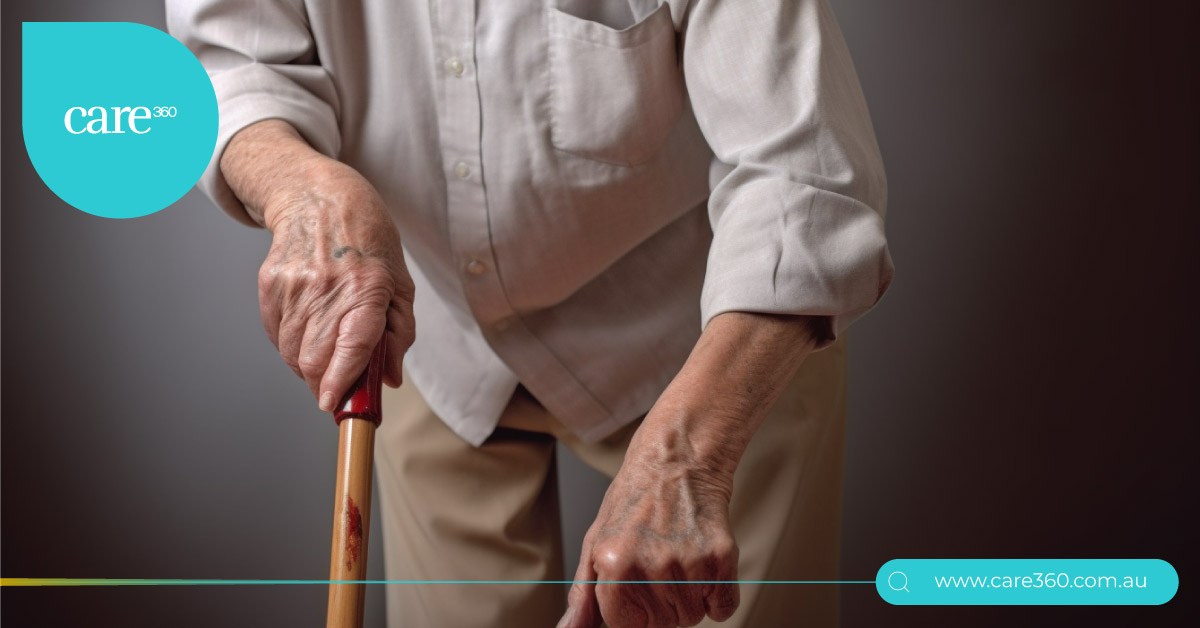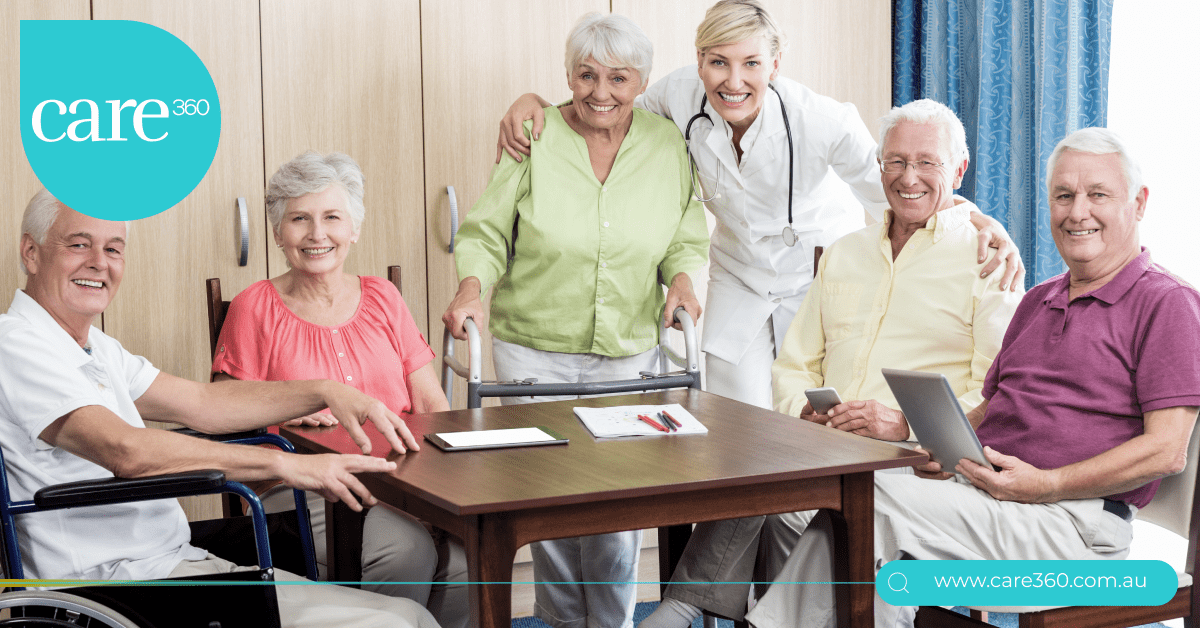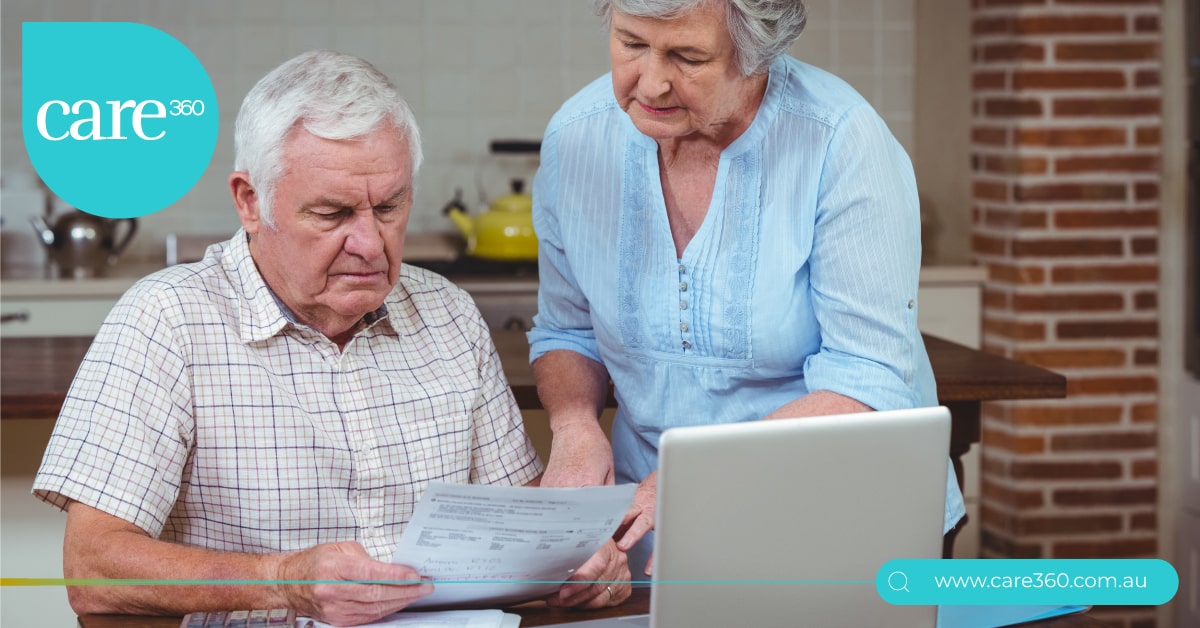
We all want our parents to stay young and healthy forever and watching them age can be an emotional experience. Seeing them struggle with everyday tasks can be challenging, and there may come a time where you realise your parents or loved ones may need more help than they used to – it might be time to start considering aged care.
While this decision comes with many emotions for both you and your loved one, it may be the best thing you can do for their health and safety.
No one knows your parents or loved ones better than you do, so if you think it might be time to think about transitioning into an aged care home, these are some of the Signs mum or dad may be ready for aged care
Changes in their demeanour
Can you see a noticeable change in your loved one’s demeanour? Do they get excited and laugh like they used to? Or do they have little to no energy and seem withdrawn or even sad?
You may even notice they become aggressive and act out in frustration in response to offers of assistance. These emotions are common and a reaction to the feeling that they are losing their independence – or in relation to some medical conditions that can relate to cognitive decline.
Their appearance has changed
If your mum or dad has always taken pride in their appearance, but they seem to appear more dishevelled each time you see them (perhaps their clothes don’t seem clean or ironed or their hair is unkempt) this could be a sign that they’re avoiding washing their clothing or even themselves because it is too difficult for them to undertake unassisted.
You may notice their weight is fluctuating and any drastic weight loss or weight gain could be cause for concern. This could mean your parent or loved one has a medical condition that’s going untreated. Perhaps they’re having trouble remembering if they’ve eaten, so they eat again, or they forget to eat at all.
They may also be eating less nutrient-dense food out of ease because cooking fresh and healthy meals may be too difficult.
They are taking less pride in their home
Is their home as neat and tidy as it used to be? Is your loved one able to operate household appliances safely? Are they washing up and doing laundry with ease? These are all important questions to ask if you’re unsure if your mum, dad or loved one is able to continue living unassisted.
You may even notice essential items around the home, such as lights or smoke alarms, breaking and not being fixed because it’s simply too difficult. Perhaps bills are piling up in the mail – sign your parent or loved one is unable to manage their finances alone.
There may also be an increase in expired food in the fridge or pantry, which can be concerning if they were to reach for it and eat it without realising.
If their home is across multiple levels, it may also become a safety risk for your loved one if they’re finding it more and more challenging to walk up and down stairs unassisted.
They’re isolated from friends and family
Isolation became a very real issue in 2020 as the COVID pandemic struck. As we age, it becomes an even bigger problem as we can experience a loss of confidence in doing the things we once did with ease. This could be driving, catching public transport or even visiting the local shops.
If your loved one has a hard time leaving their home, they’re unlikely to have a strong social circle. Research performed at Michigan State University of 271,053 adults found friendships contributed more to happiness than familial relationships in seniors. Those friendships also help older adults stay healthier, both physically and emotionally.
If your loved one is leaving the house less and less, they’re also more at risk of depression. Pair this with the loss of loved ones and friends or dealing with illness, and they can be left feeling anxious and sad.
Symptoms of depression can also be difficult to recognise in older people as sadness, sleep and appetite problems, or mood changes can sometimes be dismissed as a ‘normal’ part of ageing.
They’re often confused
Is your mum, dad or loved one unsure of when they last completed a simple task, or even when they last showered or ate? Perhaps they’ve forgotten how to do something they’ve done their whole life or have trouble remembering where they put general household items.
Often one of the biggest risks with confusion is forgetting to take critical medications or taking an incorrect dose. You may also find old or expired medication around the home that could cause severe damage if ingested.
Leaving the stove on, forgetting to lock the front door, leaving the bath running or losing their way home when venturing out can also cause concern for your loved one’s health and safety.
They’re unable to handle an emergency
Do you believe your loved one would be unable to handle an emergency at home, should it occur? If there was a power outage, fire or they needed an ambulance, would they be able to call for help and protect themselves? If the answer is no, it is likely time to consider the transition into aged care for their safety and your peace of mind.
Increase in hospital visits
Perhaps your loved one is finding themselves in the hospital more frequently and for more extended periods than before. This could be make you feel uneasy about their ability to continue living alone at home and could be one of the most obvious signs it’s time to transition to aged care.
Loss of mobility and balance
Seeing our parents or loved ones becoming frailer can be very upsetting. You, or even they, may also become more nervous about falls and their ability to be safe at home without help. It could even be as simple as having trouble standing or sitting down.
Take note of any unexplained bruises, cuts or scratches that may indicate they’re having trouble with their balance. You may want to consider installing rails around the house to ensure their safety while they continue to reside at home.
Caregiving has become too much for you
If you are struggling to take care of your loved one and their needs have become too much for you, it could be time to make a change. You need to ensure you’re taking care of yourself as well as your loved one and if you’re feeling the strain either physically or mentally, perhaps it is time to consider how you can best meet the needs of all involved.
Summary
Knowing the signs can help you decide when is the right time for your parents or loved one to transition to aged care. While it may be filled with mixed emotions and even guilt, in many cases it can be the best solution for keeping your mum or dad healthy and safe.
Ideally, you will have discussed the topic of aged care with mum or dad long before it is needed. This way you can learn what’s important to them in terms of their lifestyle and other priorities, which will help you decide on the type aged care home that will suit them best.
Care360 is the only independent service that allows you to find the right aged care home quickly and easily. We have made it our mission to provide independent, reliable and trustworthy information so you can transition your loved one to aged care with the confidence you’re making an informed decision.
Find out more about finding the right aged care home for your loved one here.
References:
Chopik, W., 2017. Associations among relational values, support, health, and well‐being across the adult lifespan. Personal Relationships, 24(2).






